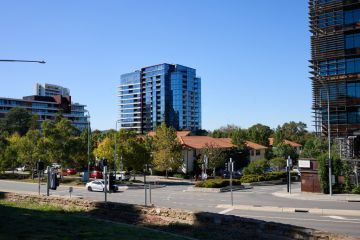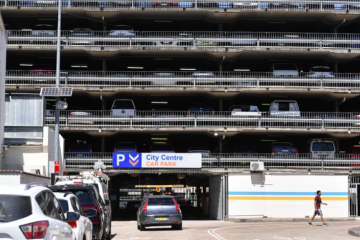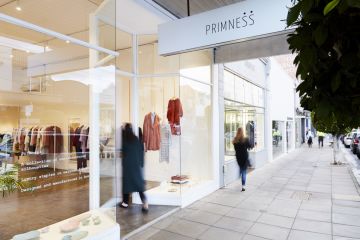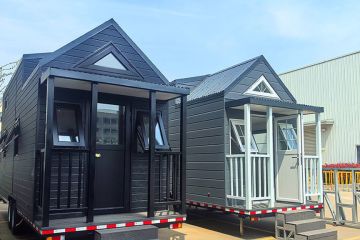Preparing pupils for workplaces of the future

Recess, lunchtime and after-school are busy times at St Monica’s College in Epping.
Some of the science and technology classrooms have become STEAM hubs – a place for students interested in understanding how things work to meet and brainstorm ideas.
The hubs have become popular with boys and girls with a passion for computing, robotics and coding but as well as encouraging interest in the important STEM subjects, St Monica’s has added arts to the mix – hence the STEAM acronym.
It’s just one way in which the co-educational catholic school is preparing students for their future workplace, whatever that may look like. And St Monica’s College is not the only school keeping a close eye on how to best equip students with the right skills and mindset for the future.
Across Melbourne, educational experts are developing new facilities and programs to cope with constantly changing workplaces.
The STEAM hubs were introduced within the past year at St Monica’s College – initially at the junior campus and now the senior campus, too.
“We have an ex-student who is a world champion drone flyer and some of our staff have donated old PlayStations and students have refurbished them and created gaming hubs. They can do coding work, take apart computers to understand how they work, and they can learn robotics and general tinkering,” says Cameron Whitford, deputy principal at St Monica’s College.
“The hubs allow students to explore whatever they want with the available equipment. We’ve included the Arts and do some work around visual design, textiles and clothing design and we’d like to bring in digital arts in the next few years, too.
“The hubs encourage an entrepreneurial spirit. When you think of some of the ideas and start-ups that came out of Silicon Valley, some of those happened by default. The hubs encourage students to have a go, to fail and to try again.”
The school has also undergone physical changes with learning spaces becoming adaptable to smaller groups or more open-space learning. St Monica’s also continues to build cultural and racial awareness and respect in an increasingly global world.
At St Catherine’s School in Toorak, teachers encourage students to develop complex problem-solving skills.
The girls’ school’s academic programs are guided by the advice of Australia’s chief scientist, Alan Finkel. “Finkel argues the importance of actually specialising in something – mastering a discipline and building a solid foundation in content that can then be applied through problem solving,” says principal, Michelle Carroll.
Finkel also refers to the importance of the ‘T-Worker’, a term coined by IBM. “The vertical line of the ‘T’ represents a deep expertise in a specialised field and the horizontal bar represents the flexibility to apply this expertise creatively and collaboratively across a range of different situations and scenarios,” says Carroll.
“What is important for the future is the interconnection between a depth of knowledge in disciplines with key competencies such as critical thinking, communication skills and collaboration, and genuine character traits such as persistence, leadership and social and cultural awareness.”
Encouraging students to take advantage of leadership opportunities is also a focus at St Catherine’s and the school actively uses its Old Girl network to mentor students. Carroll believes parents can also support their children to develop the skills and qualities that will help them in the workplaces of the future.
“Parents need to foster a drive that enables teens to strive when challenged by learning when it is difficult and to seek opportunities for their daughters to ‘find their voice’ through reasoned thinking and articulation of ideas,” she says.
“And parents must help by raising children with strong character traits that engender curiosity, persistence, leadership and a social and cultural awareness.”
Sign up for the best of Domain Review in your inbox each week
We thought you might like
States
Capital Cities
Capital Cities - Rentals
Popular Areas
Allhomes
More







